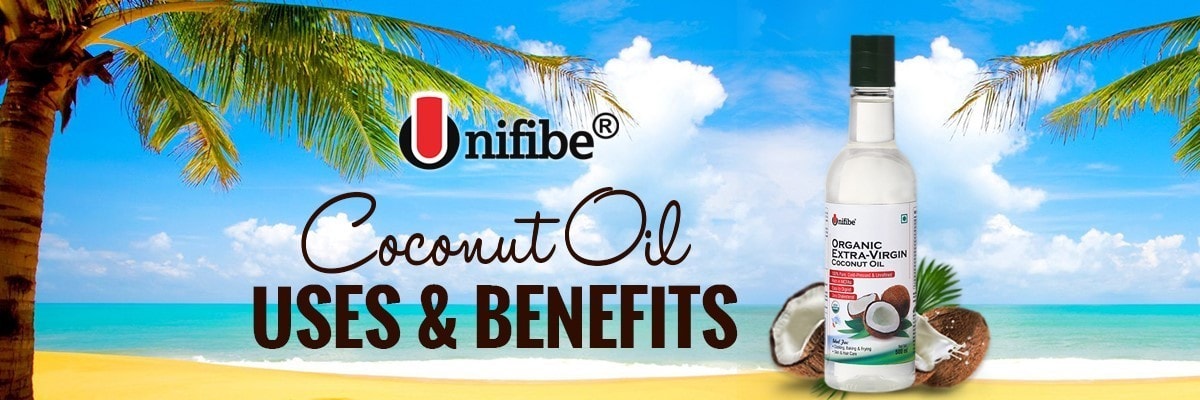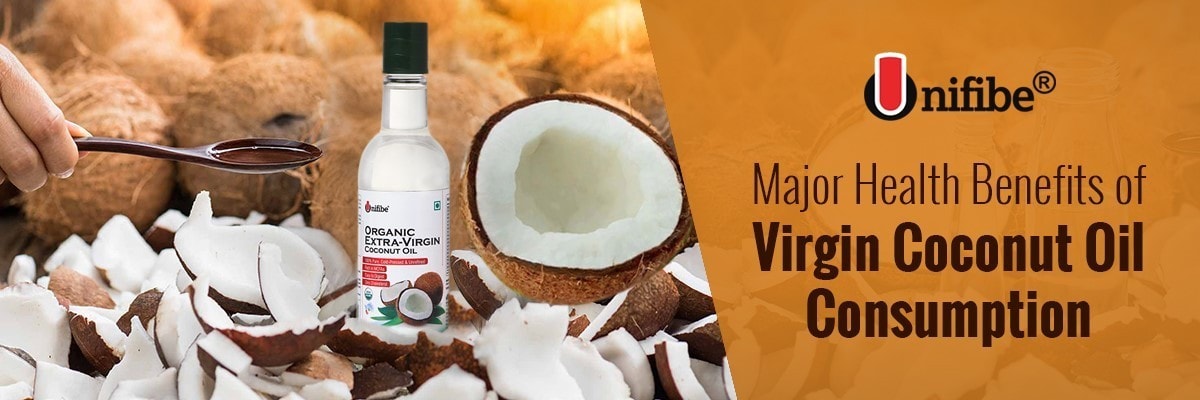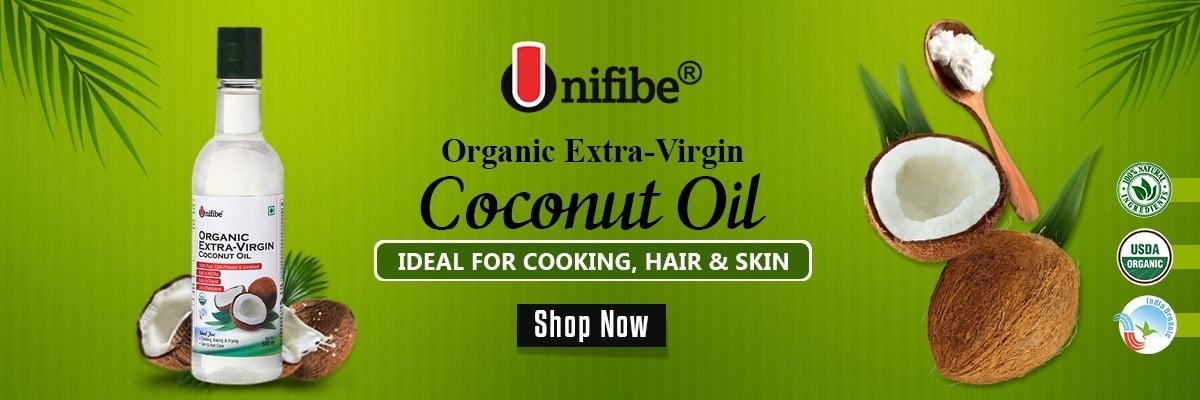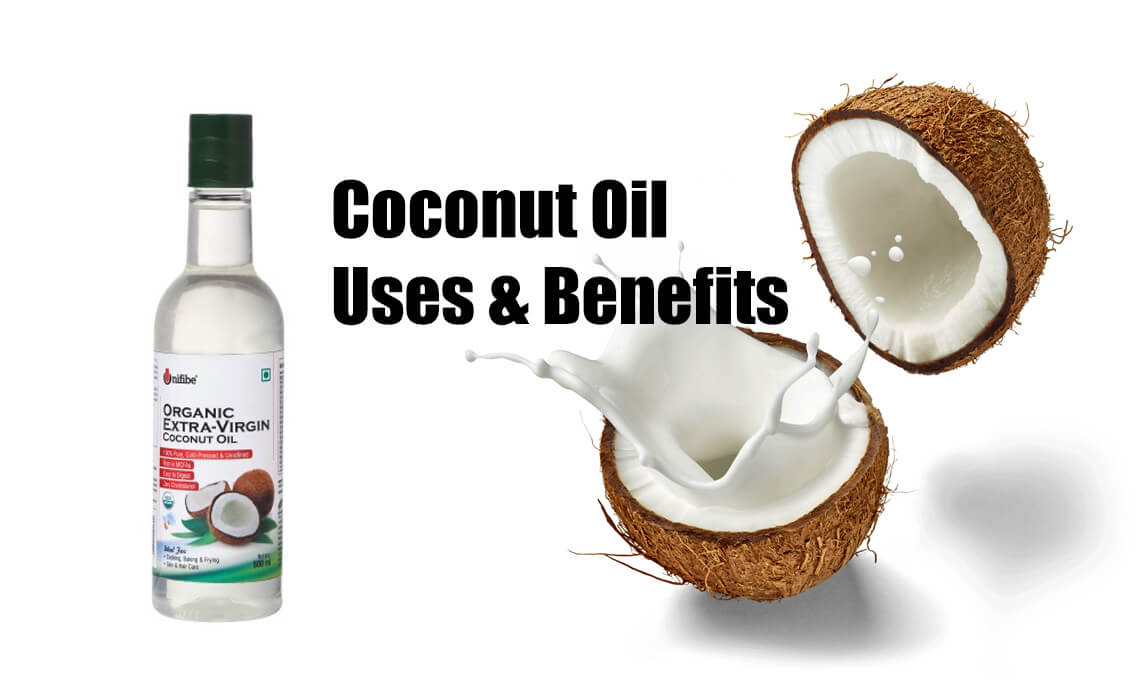Before we dive in to details about coconut oil, let’s discuss its major constituent: FAT!

Fat Had A Bad Rep… But Times Are Changing
Something that all of us can relate to is the ever-growing emphasis on fat. Whether it is the macro-nutrient called as fat or the bulge of belly fat that bothers a large section of the population. In general, the aspiration for most is to have a lean and low-fat body type but it is something that is not easily achieved with the modern-day lifestyles.
And then there is the barrage of information on fad diets which may or may not have any scientific basis to them apart from anecdotal evidence. To give you some context, a majority of the ‘recommended’ diets are an off-shoot of the Atkins Diet where almost all of them suggest reducing the amount of carbohydrates consumed in a day versus fats and protein. The trending Ketogenic or Keto diet recommends high-fat, adequate protein and low-carb intake for best results practiced for short periods of time to achieve fat loss and apparent boosts in energy levels. Now while these diets may work in the short run, any good nutritionist can tell you that the key in the long haul is ‘Moderation’ and ‘Balance’. These key words may help achieve optimal body fat and health.
So here we will try to explore one particular product which is high in ‘fat’, but yet it has garnered huge global attention for being a health supporting, rather than a health depleting item with sound scientific research to back up the claims. Claims such as it is helping reducing fat, treating Alzheimer’s, preventing heart disease, blood pressure and curing urinary tract infections – backed up with genuine scientific studies!
Not All Fats Are the Same…
Fat is one of the 3 major macronutrients essential for proper body functioning and overall health. Fats are important as they help mobilize and absorb vitamins, provide a stored form of energy and provide insulation for the regulation of body temperature. Additionally, Essential fatty acids play a crucial role in brain development, managing inflammation and blood clotting.
Fat is also the most calorie-dense nutrient, hence, consumption in moderation is crucial. However, Trans Fats are a big no-no as their consumption leads to chronic disease states including high-blood pressure, high-cholesterol levels, diabetes, stroke and more.
Saturated fats are the in-between fats where the science has been mixed. Historical recommendations have pointed towards these being a cause of high blood cholesterol levels and heart disease. However, recent science has debunked a lot of the myths and suggested that they have no adverse effects on health as long as they are consumed in moderation. It is recommended that one consume less than 10% of their calories from saturated fat in a day by the American Heart Association.
If we dive deeper into dietary saturated fats we find that there are two types: Medium-Chain Fatty Acids (MCFAs) and Long-Chain Fatty Acids (LCFAs). MCFAs are generally considered better for health due to multiple reasons. They are more easily absorbed and transported to the liver where they are quickly metabolized for energy instead of being stored. Caproic, Caprylic, Capric and Lauric Acids are MCFAs that provide the major health benefits associated with consumption of MCT Oil (Supplements) and Edible Virgin Coconut Oils.

Some of the clinically proven health benefits of MCFA consumption from Virgin Coconut Oil (VCO) include the following areas:
- Alzheimer’s DiseaseMCFAs once digested by the liver creates ketones that are utilized by the brain easily for energy. This reduces the dependence on insulin to process glucose into energy. Patients that suffer from Alzheimer’s lose the ability to create its own insulin and power brain cells with glucose; hence, the ketones from coconut oil create an alternative source of energy to support brain function and memory.
- Chronic InflammationIt is common scientific consensus today that most of the chronic diseases such as high blood pressure, diabetes, cancers, arthritis and others are triggered by inflammation over a period of time. Virgin Coconut Oil (VCO) is rich in antioxidants which helps reduce and combat inflammation caused by poor modern-day diets, environmental pollutants and other stressors.
- OsteoporosisCoconut oil helps increase calcium absorption in the gut which not only increases bone volume but also decreases bone loss due to osteoporosis.
- Weight & Fat LossA fat contributing to fat loss? Well yes, as researchers have found that MCFAs improve the fat-burning ability of the body by using energy reserves more effectively. Additionally, consumption of a high-calorie oil like this naturally reduces one’s urge to eat and decreases appetite – helping eat moderately and lose weight.
- Hormone BalanceCoconut oil naturally balances hormones since it is a great source of saturated fats such as lauric acid and is especially recommended during menopause for improving estrogen levels.
How to Use Coconut Oil
We recommend purchasing virgin coconut oil for the best health benefits as compared to refined or processed coconut oils which generally have a different chemical makeup and the fats are no longer good for consumption. Furthermore, VCO retains its antioxidant profile due to it not undergoing a harsh chemical or bleaching process that a refined coconut oil may undergo.
VCO also has a stronger coconut flavor and smell when compared to regular coconut oils, hence, it makes for a great choice when used for cooking, baking, sautéing or as a food topping.
Apart from this, coconut oil can be used in many other creative ways including as a natural skin moisturizer and hair conditioner.































